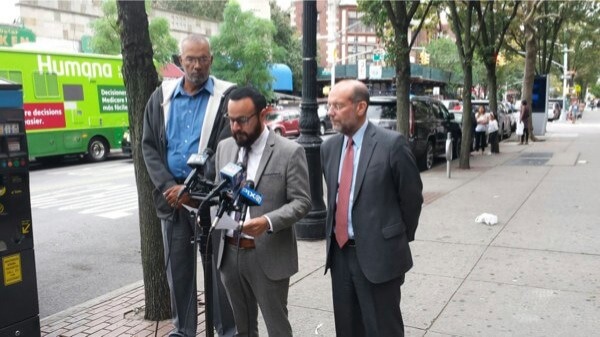By Bill Parry
The city will stop housing homeless people at a Corona hotel by 2019 as the de Blasio administration begins a phase-out of 35 commercial hotel facilities in Queens.
The use of hotels, including the Maspeth Holiday Inn Express which drew nightly protests last year, and private apartments known as cluster sites, will be replaced by 90 shelters as part of a five-year plan that will offer homeless New Yorkers the opportunity to be sheltered in their home boroughs. This will keep the homeless closer to their support networks like schools, family members, healthcare, houses of worship, and neighborhoods where they once lived.
“As we work to turn the tide on homelessness, we are phasing out every single cluster site and commercial hotel facility across the five boroughs, including all remaining 35 commercial hotel facilities in Queens. Ending use of this location by 2019 is an important step towards that goal,” Department of Social Services Commissioner Steven Banks said. “We are proud to partner with fundamentally compassionate New Yorkers citywide to raise the standards for our homeless neighbors across the board, ensuring they have access to high-quality facilities and providing the supports necessary to restabilize their lives within the communities they last called home.”
The Holiday Inn Express on Horace Harding Expressway will be the first to be phased out in Queens, which has more hotels housing the homeless than any other borough. State Assemblyman Francisco Moya (D-Jackson Heights) made the announcement with Banks outside his district office Tuesday in Jackson Heights.
“New York City has a moral and legal obligation to provide shelter to those who’ve fallen on hard economic times, victims of domestic abuse and people with disabilities,” Moya said. “Unfortunately, the affordability gap for renters has widened and we’re seeing more individuals struggle to maintain stable housing. Although the city has used hotels as a temporary stop-gap solution, homeless New Yorkers deserve more suitable housing while they transition back into a home of their own.”
Mayor Bill de Blasio’s “Turning the Tide on Homelessness” plan, announced in February, will move slowly as talks begin with community boards and civic associations as to possible locations for the new shelters.
“Addressing the homelessness crisis is a moral imperative for our city,” U.S. Rep. Joseph Crowley (D-Jackson Heights) said. “We need to do right by our most vulnerable New Yorkers by ensuring they are placed in adequate spaces that meet their families’ day-to-day needs, kept within their communities, and given the best opportunities to get back on their feet. I applaud the phasing out of cluster and commercial hotels as shelters, and I’m encouraged by the efforts of the Department of Homeless Services to implement a more effective system that gives homeless New Yorkers the best shot at pulling themselves up.”
State Sen. Jose Peralta (D-East Elmhurst) discovered the city had begun using the Holiday Inn Express to house the homeless in September 2016, without informing the community.
“Later, we also uncovered that there was a Level 2 sex offender living in the shelter, which not only endangered people in the facility, but also children from the nearby schools,” Peralta said. “It is my hope, once and for all, that DHS informs community members and their elected officials of its homeless shelter plans, and avoids similar situations now and in the future. The same way DHS is informing of the closure of this shelter more than one year in advance, I hope the city agency applies the same philosophy when opening shelters to avoid discovering their existence when they are already up and running.”
Reach reporter Bill Parry by e-mail at bparr






























